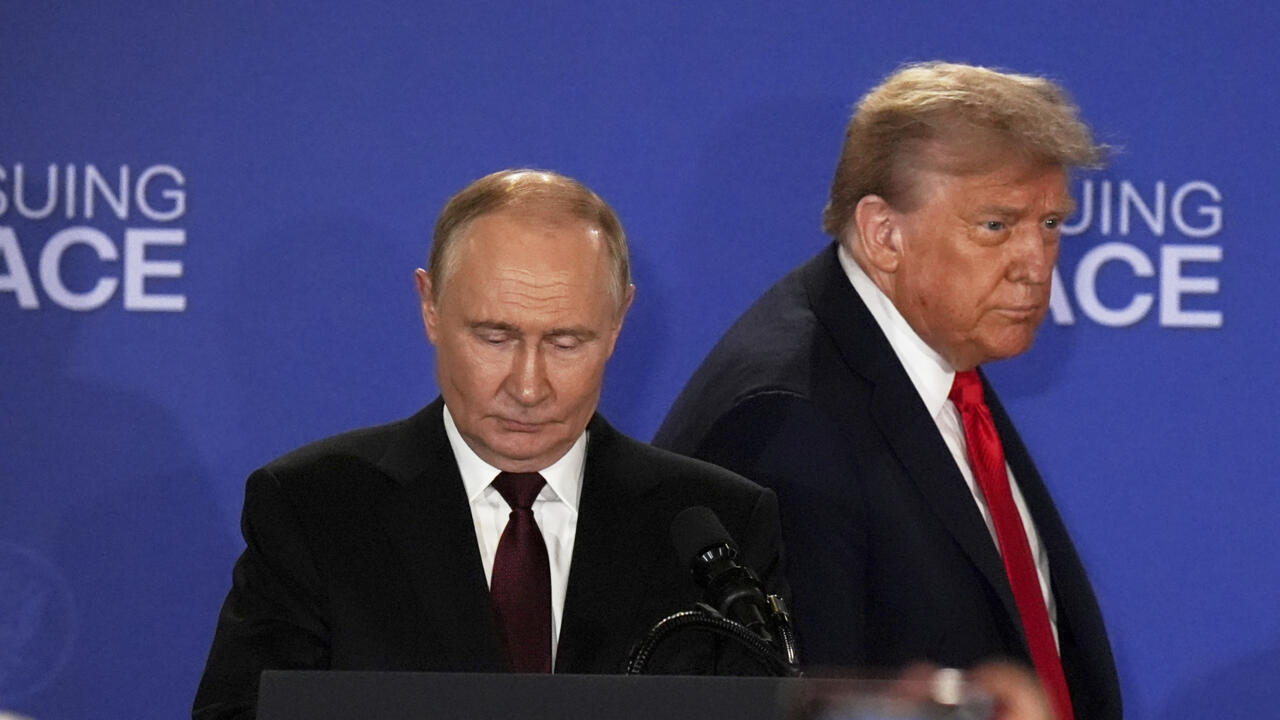Trump-Putin Talks Hit Pause as Moscow Grows Uneasy Over Stalled Ceasefire Plans
Trump-Putin Talks Hit Pause as Moscow Grows Uneasy Over Stalled Ceasefire Plans
By
Rachel Steinberg
Last updated:
October 23, 2025
First Published:
October 23, 2025

Photo: France 24
Trump Holds Back on Putin Meeting
U.S. President Donald Trump has put the long-anticipated meeting with Russian President Vladimir Putin on hold, saying he doesn’t want “to have a wasted meeting.” The summit, originally planned for Budapest, Hungary, in the coming weeks, was meant to address the ongoing war in Ukraine — but growing friction over ceasefire terms has put the brakes on progress.
Following a tense phone call between U.S. Secretary of State Marco Rubio and Russian Foreign Minister Sergey Lavrov, Trump said he was reluctant to move forward. “I don’t want to have a waste of time — so we’ll see what happens,” Trump told reporters, signaling frustration over Russia’s unwillingness to consider an immediate ceasefire.
Lavrov confirmed Russia’s stance remained unchanged since the two leaders met in Alaska earlier this year. Moscow still insists on “long-term peace” but rejects what it calls “a premature ceasefire that achieves nothing.”
Kremlin in Damage Control Mode
Within hours of Trump’s announcement, the Kremlin scrambled to contain the fallout. Presidential spokesperson Dmitry Peskov downplayed reports of a canceled summit, insisting no official date had been finalized.
“This is yet to be done. Careful preparation is needed before then,” Peskov said, urging patience and dismissing what he described as “gossip and speculation” from Western media.
The Kremlin’s rapid response highlighted its growing unease. After initially portraying itself as confident about direct talks with Trump, Moscow now faces questions about whether its diplomatic influence is slipping.
Washington’s Mixed Messaging
The latest developments mark another shift in the U.S. administration’s unpredictable approach toward Russia. Since early this year, Washington has repeatedly oscillated between signaling support for Ukraine and exploring potential diplomatic compromises.
Tensions escalated after last week’s meeting between Trump and Ukrainian President Volodymyr Zelenskyy, which reportedly ended without progress. Russia appeared smug at first, having already secured Trump’s attention with what he described as a “very productive” phone call with Putin days earlier.
However, Trump’s follow-up comments about Ukraine’s eastern Donbas region reignited controversy. “It’s cut up right now — about 78% of the land is already taken by Russia,” he said while aboard Air Force One. “They should stop at the battle lines, go home, stop killing people, and be done.”
These remarks fueled speculation that Trump might be open to freezing the conflict along current front lines, a stance that Kyiv and its European allies strongly oppose.
Europe Pushes Back
European leaders, wary of alienating Washington, cautiously responded with a joint statement affirming their support for Trump’s push to end the fighting while reiterating that “international borders must not be changed by force.”
Behind the scenes, however, officials in Brussels and Berlin expressed frustration. Many fear that halting the war without clear terms could embolden Moscow and undermine Ukraine’s sovereignty.
Moscow Cries “Fake News”
As uncertainty grew, Russian officials moved to reclaim control of the narrative. Peskov emphasized that “neither President Trump nor President Putin wants to waste time” and reiterated that both sides “remain committed to effective diplomacy.”
Kirill Dmitriev, CEO of the Russian Direct Investment Fund and a key figure in Putin’s economic circle, accused Western outlets of twisting comments about the meeting’s timeline. “Preparations continue,” he posted on X, formerly Twitter, adding that “fake news” was being used to undermine potential progress.
Meanwhile, Russian Foreign Ministry spokesperson Maria Zakharova lashed out at what she called an “information circus” designed to “prop up Zelenskyy’s image” and derail U.S.-Russia dialogue.
Growing Anxiety in Moscow
The abrupt pause has rattled Moscow’s political establishment. After months of projecting confidence that Putin and Trump were aligned on de-escalation, the Kremlin now faces the prospect of stalled diplomacy — and growing pressure at home.
Analysts note that with energy exports still under Western sanctions and the war in Ukraine showing no sign of ending, Russia can ill afford further diplomatic isolation. For Putin, maintaining the perception of dialogue with Washington is crucial — both as leverage in negotiations and as a signal of global relevance.
Whether the Budapest summit will eventually take place remains uncertain. What is clear, however, is that both sides are recalibrating — and Moscow’s once-confident tone has turned noticeably cautious.
Popular articles
Subscribe to unlock premium content
The Unexpected Growth of Artisan Mushroom Farming in Europe

How Urban Rooftop Gardening Became a Luxury Lifestyle Trend

The Tiny Island of Sark and Its Million-Dollar Eco-Tourism Model

The Unexpected Growth of Artisan Mushroom Farming in Europe

How Urban Rooftop Gardening Became a Luxury Lifestyle Trend

The Unexpected Growth of Artisan Mushroom Farming in Europe









